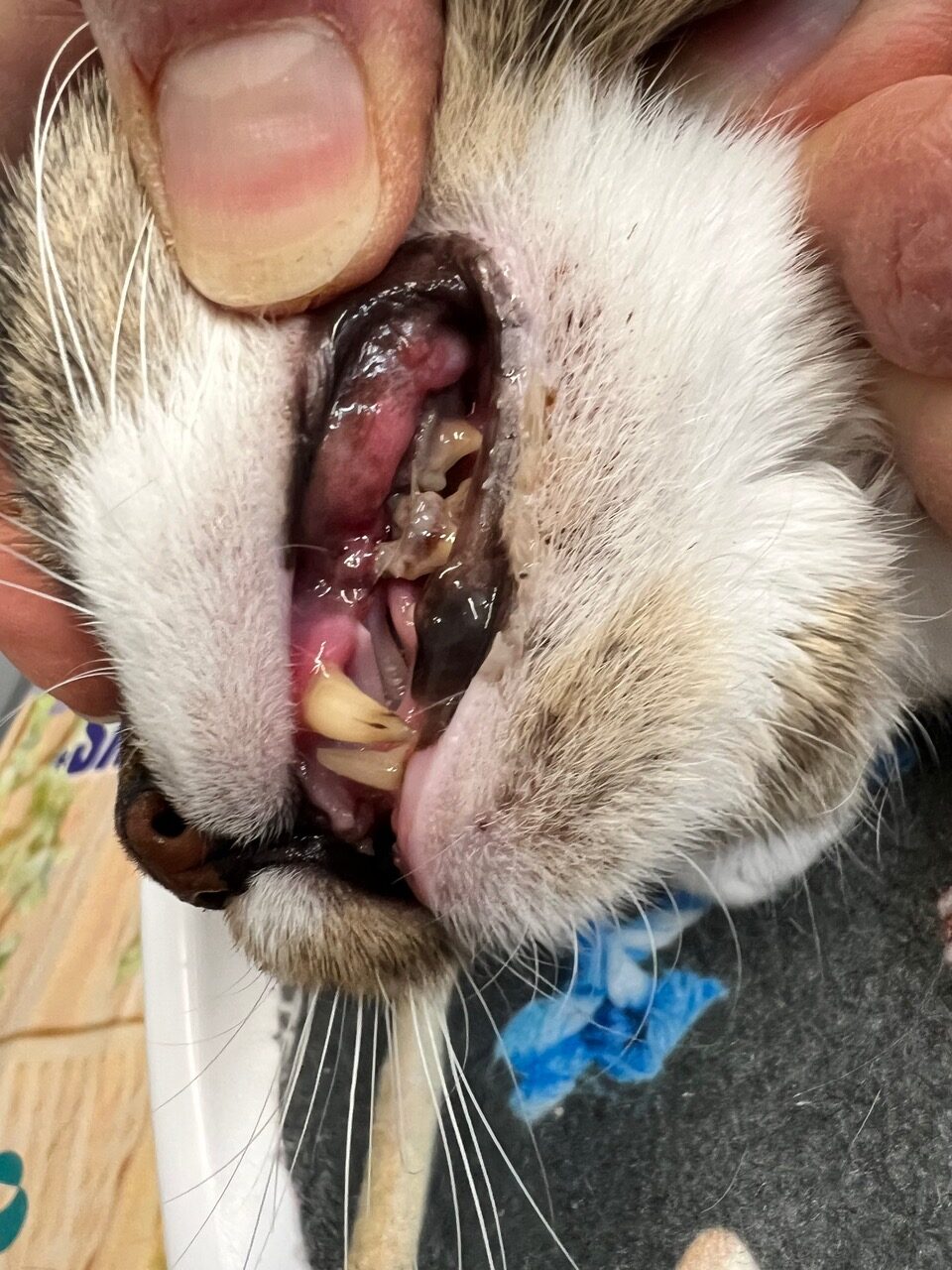February is National Pet Dental Month. This month we’d like to bring awareness to pet gingivitis. Gingivitis can be seen as red, irritated, or inflamed tissue along the gum line. It is not as easy to spot as a heavy tarter or a broken tooth. Many times pet owners are unable to recognizes gingivitis until it is severe. This inflammation is not to be ignored.
Plaque (made up of food, bacteria and saliva) build up is the most common cause of gingivitis. Pets with gingivitis may drool, have bad breath, be messy eaters, lose weight or be reactive when having their face touched or while eating. Preventing and treating gingivitis is important. Left untreated it will cause gum erosion and tooth decay.
Gingivitis can also be jump started when there is trauma such a a broken tooth or when the teeth grow in incorrectly. Some young puppies or kittens may also experience mild gingivitis from teething.
Genetics and underlying health issues also contribute to gingivitis development. Cats with feline leukemia virus and feline immunodeficiency virus are more likely to experience gingivitis. Certain breeds of cats or dogs may have an overgrowth of gum tissue.
Keeping the teeth clean will help prevent gingivitis. Brushing your pets teeth is very important for Oral Health. Here’s a video on brushing cat teeth :
Here’s a video on brushing dog teeth:
Please note, if your pet already has advanced gingivitis, a dental cleaning under anesthesia will be needed before tooth brushing can be effective. Plaque build up will be too heavy to remove without dental equipment.
Diet is also important for Oral health. Some pet owners believe feeding dry kibble alone will prevent gingivitis. The Veterinary Oral Health Council has a list of foods that reduce plaque and promote oral health. Although these diets are a helpful tool, changing the diet alone is not enough to prevent or treat gingivitis. Dental cleanings under anesthesia and brushing your pet’s teeth are the best ways to prevent plaque build up.
At Wags and Whiskers we know the importance of oral health. Dr Janelle will perform an oral health evaluation with every exam. She will educate owners on their pets dental health status and provide a plan for the most effective care for the cat or dog. A pet with good oral hygiene is a healthy pet!
